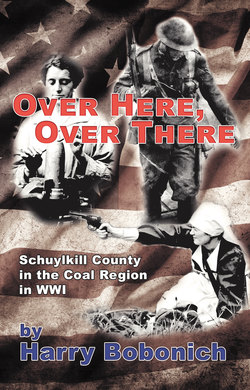Читать книгу Over Here and Over There - Harry Bobonich - Страница 24
На сайте Литреса книга снята с продажи.
ОглавлениеPoison Gas at Ypres
In 1915, the Second Battle of Ypres was fought from April 22--May 25 for the control of the important town of Ypres in western Belgium. Early on the first day of the assault, the Germans launched a heavy artillery barrage, but then the battle line was relatively quiet. After the shelling ceased, the Allied troops expected the Germans to resume their attack.
The Germans, however, waited for a suitable wind to launch another charge, only this time it would be a surprise attack: a new weapon—chlorine gas. Early that evening, the prevailing wind was favorable and the bombardment resumed. Shortly afterward the Allied troops noticed a strange yellowish-green cloud, which was close to the ground and drifting toward them. Was it simply a fog-like cover to mask the enemy advance—or was it something else? As the Allies waited, the deadly chlorine gas floated slowly across no man’s land and down into the trenches—but no advancing army behind the smoke screen. The unexpected horrible gas attack had a devastating effect; it created havoc and confusion among the Allied defenders. While about 10,000 Allied troops were seriously affected by the gas, it turned out that half of those gassed died an agonizing tortuous death.
While the deadly attack created a large gap in the Allied lines that even surprised the Germans: there was no major German breakthrough but they did make significant advances. It was the first time poison gas on a large scale had been used successfully as a weapon in a war. The Germans apparently missed a great opportunity. If they would have followed up their poisonous gas attack with reserve units, there was a good possibility that they would have crashed through the Allied lines.
On April 24 the Germans launched a second gas attack, which was directed against Canadian troops that suffered approximately 6,000 casualties, including 1,000 fatalities. The Germans continued with several more gas attacks and eventually decided to call off the offensive in late May. While the Germans gained some territory, the Allies won a propaganda victory since the chemical attacks were viewed as inhumane and cowardly; as a result, public opinion was becoming more hostile toward Germany. The Allies (British, Canadian and French) lost approximately 69,000 troops, while the Germans lost 35,000 men: the difference was mainly due to the use of chlorine by the Germans. We will tell you more shortly about Fritz Haber who oversaw the deadly chlorine gas attack. (Duffy 2009)
In Flanders Fields
On May 2nd, after several weeks of fighting, a German artillery shell exploded near artillery Lieutenant Alexis Helmer and killed him instantly. Helmer, who was a popular Canadian artillery officer, was stationed at the gun positions near Ypres at the time. He was only 22 years old: he is buried at Menin Gate (Ypres) Memorial Belgium. His close friend, doctor and poet Major John McCrae, was asked to perform the burial service for Helmer since the chaplain was not available.
Accounts vary as to when, but sometime shortly afterward McCrae wrote the following famous poem titled, “In Flanders Fields.”
In Flanders fields the poppies blow
Between the crosses, row on row,
That mark our place; and in the sky
The larks, still bravely singing, fly
Scarce heard amid the guns below.
We are the Dead. Short days ago
We lived, felt dawn, saw sunset glow,
Loved, and were loved, and now we lie,
In Flanders fields.
Take up our quarrel with the foe:
To you from failing hands we throw
The torch; be yours to hold it high.
If ye break faith with us who die
We shall not sleep, though poppies grow
In Flanders fields.
According to legend, McCrae didn’t think the poem was very good and tossed it away. Several of McCrae’s friends, however, retrieved the poem: it was published on December 8 of that same year. Acting Colonel McCrae then contracted pneumonia while in charge of the Canadian Hospital in Boulogne and died on January 28, 1918. He is buried in Wimereux Cemetery, Pas-de- Calais, France. (“John McCrae,” n.a.n.d.)
